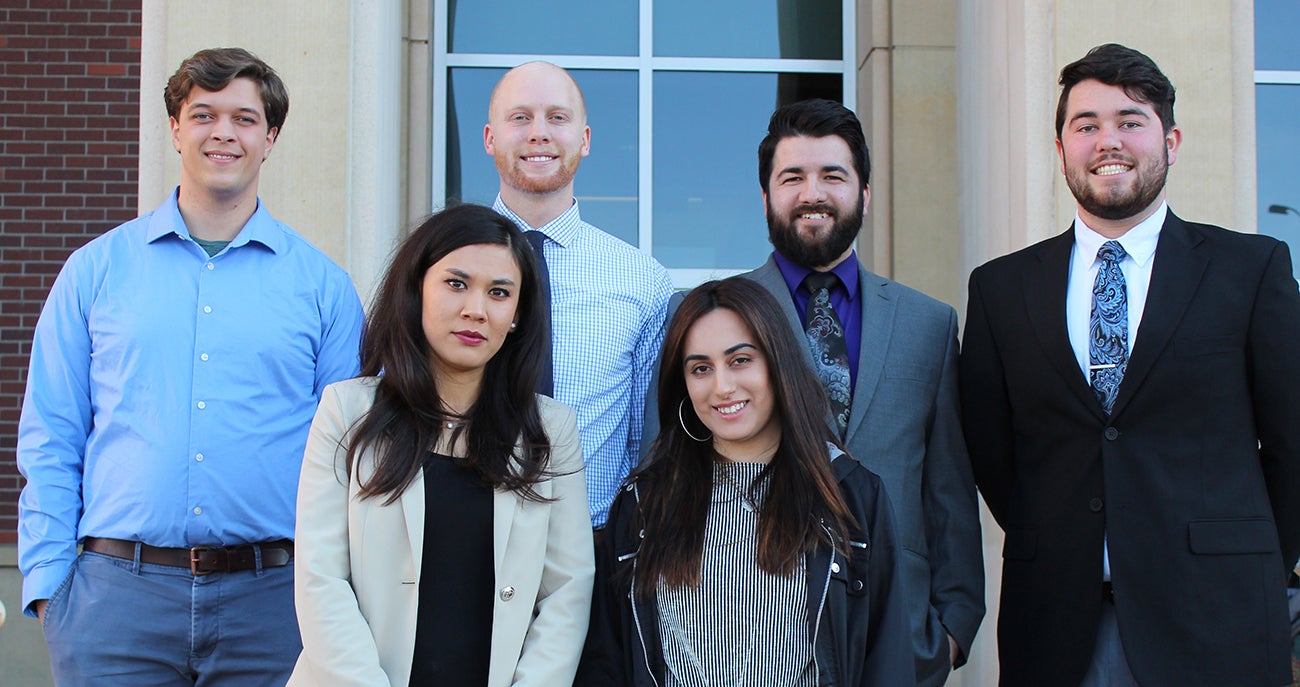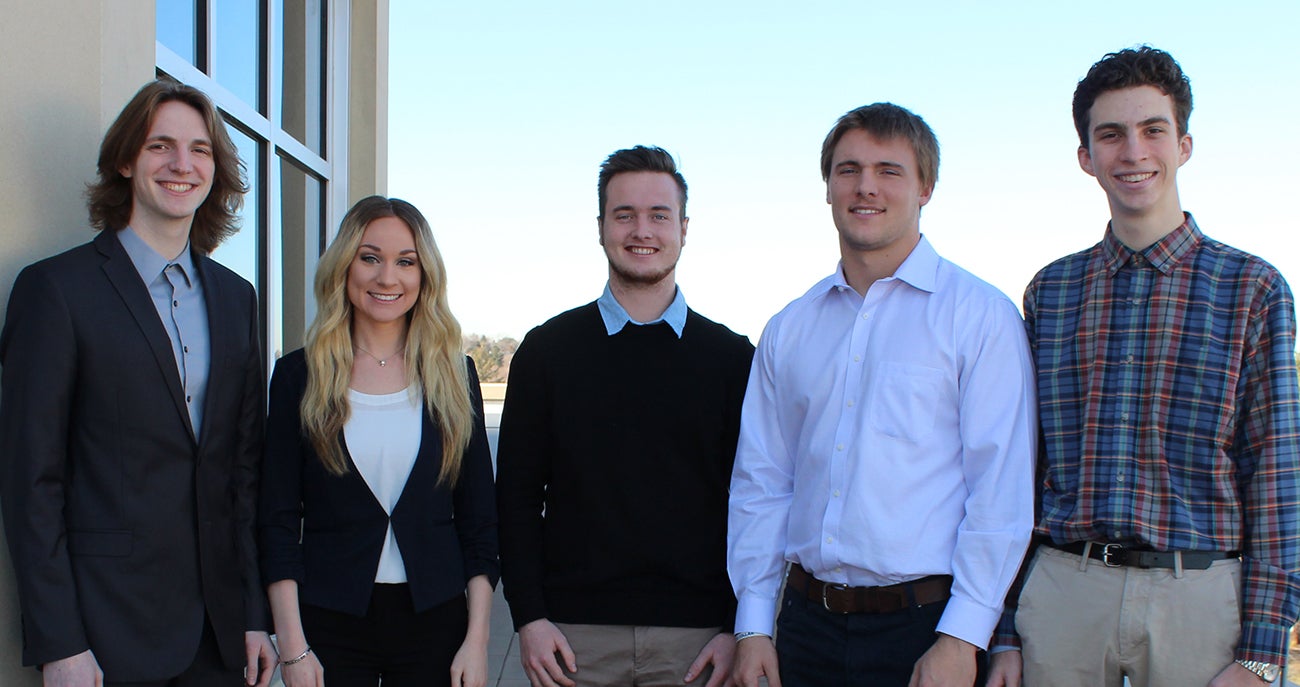Students from the College of Business and Economics and the College of Engineering were awarded $15,000 to contribute their ideas directly to an industry that’s constantly evolving: marine energy. In May 2020, these students will compete in the U.S. Department of Energy’s first Marine Energy Collegiate Competition in Washington, D.C. Boise State is one of 15 universities selected to participate, alongside Columbia University, University of California, Berkeley, Virginia Tech and others.
Boise State’s team comprises business students in a design thinking class taught by management lecturer Christy Suciu, and senior engineering students in mechanical and biomedical engineering lecturer Lynn Catlin’s design class. The students are collaborating on innovative, eco-energy products.
“The Marine Energy Collegiate Competition offers an excellent opportunity for the College of Business and Economics and the College of Engineering to co-create and for our students to become more innovative by creating, prototyping and testing new ideas in a formal competition environment,” said Suciu.

One of these products is Tidal NRG, which aims to produce hydrogen in a way that does not emit the harmful pollutants that current hydrogen producers release as a byproduct. Tidal NRG plans to provide the market with a clean source of hydrogen that will radically change energy production by harnessing the power of the tides. By choosing a renewable source of hydrogen, firms then will be able to market their products as sustainable.
Eco Buoy, the second product Boise State students are entering into the competition, targets electrical companies to supplement their nonrenewable energy sources to become more environmentally friendly. The students designed a revolutionary buoy that harnesses wave energy with a flower-shaped, modular device. The buoy is flat, can harness small and large waves, and is completely scalable from five feet to fifty feet in diameter.

“By engaging in this multi-disciplinary development competition, not only are we enabling students to practice the skills they’ll need to be successful in professional life, but we are also exposing them to an expanding industry with positive worldwide development potential,” Catlin said.
Teams representing each university will develop a market research-supported business plan and conceptual-level technical design of their marketable device, which powers a sector of the blue economy. The teams then will present a 15-minute public pitch that will be shared at the International Conference on Ocean Energy, which occurs in conjunction with the competition. Teams also will create a visually representative table-top scale model of the technology concept along with a poster summarizing the technical and business plans.
According to Bahar Faizi, a senior from Afghanistan majoring in business administration and a member of Tidal NRG’s team, the competition offers more than just a national platform but the chance to develop new skills.
“My team had a huge role in helping me overcome my fear of public speaking,” she said. “I also learned that teamwork is a valuable work and life skill. Our team has four different cultures that generated all kinds of great ideas and creativity and helped us be successful.”